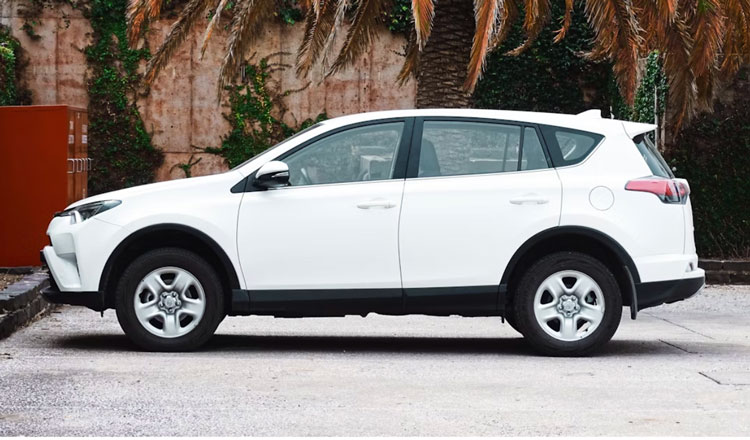Buying a new vehicle is an exhilarating experience, often filled with excitement and anticipation. However, embarking on this journey can be overwhelming. With countless options available in the market, understanding the important dos and don’ts can streamline your process and lead to a satisfactory purchase. Let’s explore important aspects to think about while buying a new vehicle, ensuring you make an informed decision that aligns with your budget and lifestyle needs.
Do Your Research Thoroughly
Understanding your options is crucial before making any decisions. Dive into research that covers various brands, models, and features. This process should include checking reliable review sites, consumer reports, and comparisons between similar vehicles. Focusing on specific aspects is helpful; what matters most to you: fuel efficiency, safety features, or technological advancements?
Many reviews highlight how some brands excel in reliability and performance, so you should identify common trends among different makes and models. Gathering this information will empower you when negotiating, ensuring you know the value of what you’re purchasing. Make sure to explore owner forums and ask specific questions related to long-term satisfaction or recurring issues. Users often share experiences that provide insights not covered in formal reviews.
Do Organize Transport
Once you’ve chosen your vehicle, plan for how it will reach you. The logistics of transporting your new purchase may seem trivial, but they can greatly impact your experience. The team behind https://directconnectautotransport.com/ says that organizing transport efficiently can save time and reduce the stress of vehicle delivery. Investigating the various transport services available allows you to choose the one best suited to your needs.
Your transport arrangements should align with the vehicle’s location and your schedule. Factors to evaluate include cost, delivery timelines, and insurance during transport. Being proactive can help ensure there are no unexpected delays. Communicate clearly with the transport company to confirm arrangements, and keep your paperwork to avoid potential issues at the last minute.
Don’t Skip the Test Drive
After narrowing down your choices, nothing substitutes for the experience of a test drive. While reviews and specifications can provide a framework, feeling a vehicle’s comfort and performance firsthand is irreplaceable. Pay attention to how the car handles, its responsiveness, and your comfort level during the drive. Test driving different models can reveal preferences you may not have considered while researching.
Each car may have unique handling characteristics when driving in various conditions, so it’s vital to assess that in person. Plan for a thorough examination of the vehicle during the test drive, including both city and highway driving, to ascertain how it performs at different speeds. Adjusting the seat positions, checking visibility, and testing navigation systems will help create an informed decision.
Don’t Rush the Negotiation Process
Once you’ve settled on the vehicle you want, entering the negotiation phase can be daunting for many buyers. It’s important not to rush this part of the process. Feeling pressured can lead to hasty decisions that you might regret later. Set your budget limits before negotiations, and remain firm about what you’re willing to pay. Start the conversation with a reasonable offer based on your research.
This approach opens room for discussion, allowing the dealer to present counteroffers. Sometimes dealers include extras to sweeten the deal. You should weigh these options against your financial parameters and needs. Don’t hesitate to walk away if negotiations don’t meet your expectations. This tactic may lead to better offers as dealerships often prefer closing sales rather than losing a customer.
Do Think About Resale Value
It is wise to think about a vehicle’s potential resale value when deciding on a purchase. Choosing a vehicle with good resale value can significantly influence your long-term satisfaction and finances. Research studies indicate that some brands retain value much better than others over several years. Vehicles like sedans and compact cars often depreciate more slowly compared to larger SUVs or trucks.
Targeting vehicles with consistent resale value allows you to maximize potential returns when it’s time to sell or trade in. Checking resale values ahead of time helps avoid future disappointments. Knowledge of a vehicle’s depreciation can provide clarity on its long-term worth, making it a key factor in your decision. Look for models that have a history of solid resale performance.
Don’t Ignore the Fine Print
When it comes to buying a vehicle, the details matter, and ignoring the fine print can lead to future headaches. Understanding the terms of your financing and warranties helps ensure alignment with your expectations. Review the purchase agreement, financing terms, and warranty coverage carefully before signing any documents. Look for any hidden fees, such as those associated with financing, insurance, or add-ons that could inflate the cost.
Clarifying these aspects upfront can prevent confusion and financial strain later on. Knowing your rights concerning warranties and service agreements is equally important. This knowledge helps ensure you’re adequately protected if issues arise with the vehicle. Research indicates that misunderstandings regarding warranties are a common area of dispute for new car buyers. Reading and understanding these documents is a smart move to avoid disputes.
Do Explore Financing Options
Financing plays a pivotal role in how you manage your budget when purchasing a new vehicle. Understanding the various options available can help you save money. Shop around for the best interest rates and loan terms, comparing offerings from banks, credit unions, and dealerships.
Think about the type of financing that best fits your needs; leasing is becoming a popular option for individuals who prefer lower monthly payments and the ability to drive newer models every few years. Ownership through financing builds equity, which can be beneficial. Engaging with online calculators aids transparency, illustrating potential costs associated with different vehicles and financing methods.
Don’t Overlook Insurance Costs
Once you purchase a new vehicle, another cost will arise: insurance. Different vehicles have varying insurance costs, directly affecting your monthly spending. Research the insurance implications of the models you are considering and seek estimates from multiple insurers.
Some vehicles are regarded as high-risk, leading insurers to charge increased premiums, while others may qualify for discounts based on safety features and technology. Understanding these variations aids in making a financial plan that encompasses all vehicle-related expenses, ensuring you won’t encounter budget surprises. Taking car safety ratings into account can further help lower insurance costs.

Do Take Your Time
Purchasing a new vehicle is not something to rush into. Taking your time allows you to explore options thoroughly, weigh the pros and cons, and ultimately make a choice that aligns with your needs. The pressures of time can lead to suboptimal decisions and regrets. Once you feel ready, revisit your chosen vehicle and think about additional personal touches like accessories or upgrades, all of which require thoughtful consideration.
Your lifestyle should guide these choices, whether focusing on practicality or a desire for luxury. Giving yourself as much time as needed before finalizing a decision helps mitigate the emotional aspects of the purchase, leading to better satisfaction with your choice. Taking a systematic approach rather than allowing haste to dictate your decisions benefits both your mental peace and financial standing. Sell your previous vehicle or trade it in.
The process of buying a new vehicle combines excitement with several layers of decision-making. Each step requires thoughtfulness and an understanding of various elements at play. Researching options thoroughly, organizing transport, considering resale values, and being diligent during negotiations leads to a purchase that enhances your driving experience. Taking your time reduces pressure and fosters more remarkable satisfaction with your new vehicle.










